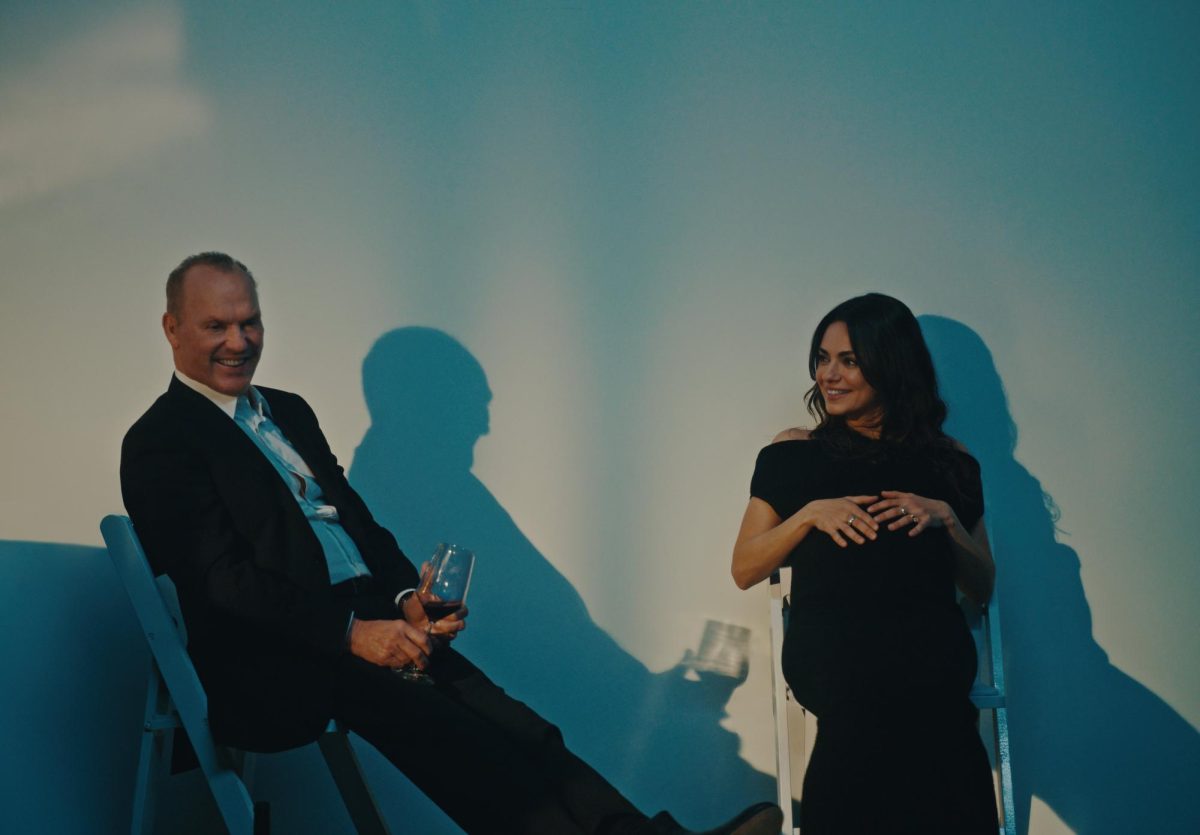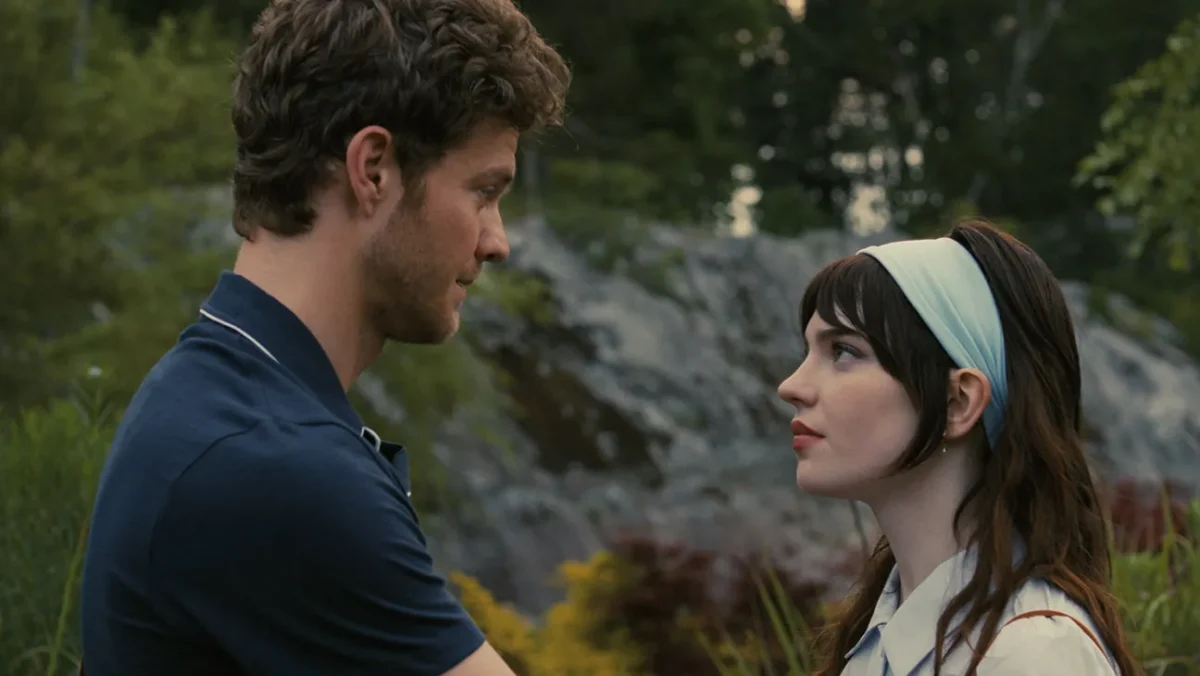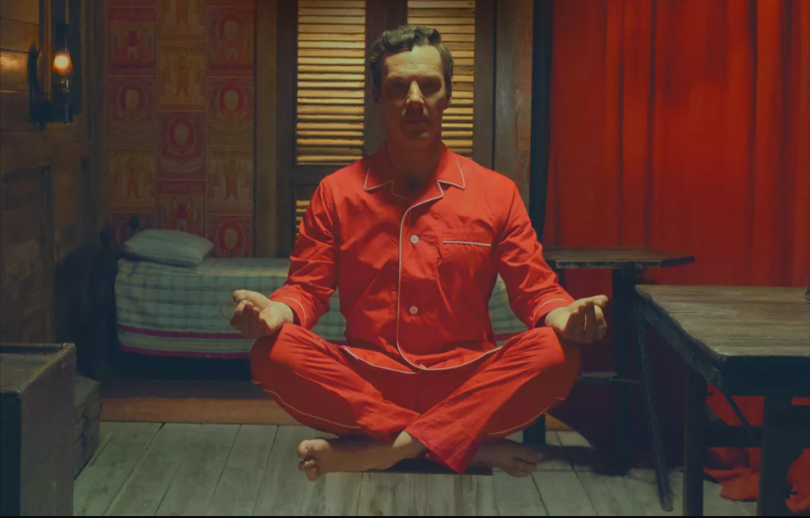Michael Keaton has a bit of a secret: his new movie “Goodrich,” released this past October in theaters nationwide, has flown almost completely under the general public’s radar. Keaton is certainly not trying to hide the film’s existence. Still, when hosting SNL the same weekend of its release, he made no mention of “Goodrich,” choosing to again promote his lead role in this year’s smash-hit “Beetlejuice Beetlejuice” — which, in its seventh weekend at the box office, made almost eight times “Goodrich’s” opening weekend gross.
It’s hard to hold it against him too much. Keaton structured most of his SNL monologue around the idea that people want to see him as Beetlejuice, and he seems willing to cater to those expectations. Whatever the case, it’s a shame that a film as uncharacteristically polished and special as “Goodrich” is getting left to the wayside and passed away into the never-ending pile of low-budget dramedies that try (and often fail) to revive the breezy, warm and fuzzy feeling of the ‘80s and ‘90s populist filmmaking that has long passed audiences by, but feels alive and ever-present in “Goodrich”.
The film, directed by Hallie Meyers-Shyer, tells the story of affluent LA art dealer Anthony Goodrich (Michael Keaton), who is woken up out of his bed with a start after he receives a call from his wife, who informs Goodrich that she has just checked into a 90-day rehab program. It’s this discovery that prompts a sort of revelation for Keaton’s character, who had no clue whatsoever about his wife’s rampant substance abuse issues. Having been completely absent from his family’s life, Keaton realizes he has been entirely oblivious to everything going on in their lives. But what’s most significant about this whole situation for Goodrich is the responsibility it leaves him, with the onus now on him alone to take care of his two elementary-school-age children, Billie and Mose.
Not bothering to waste time setting up a typical status quo, the film instead launches past this immediate inciting incident as it tells the audience all they need to know about Keaton’s character; he’s a real schmuck! From here, viewers meet Goodrich’s daughter from a previous marriage, Grace (Mila Kunis), a fully-fledged adult with a baby on the way. As is quickly made clear from their first interactions, Goodrich has never been there for Grace, leaving only feelings of disappointment and deep-seated betrayal in his wake. After remarrying his current wife (at least 30 years younger than him), Goodrich seemed bound to repeat this cycle once more until this literal wake-up call suddenly snaps him out of his stupor.
In its story, “Goodrich” is almost more akin to something like Akira Kurosawa’s “Ikiru” than a typical dramedy, as it invests so strongly in the idea that a person who has essentially lived on autopilot for their entire time on Earth can still effect significant personal change in themselves and finally start living life to the fullest.
At this point in the story, Michael Keaton goes full “Mr. Dad” mode, and we watch him go through the classic trials and tribulations of single-dad-dom. He has to make dinner for his kids! He has to drop them off at school on time! He has to find a way to explain the concept of rehab to them!
While some of those beats seem a little tried and true — in many ways, the film shares essentially the same set-up as 1983’s Keaton starring vehicle “Mr. Mom” — they feel especially refreshing coming from Keaton, who hasn’t ventured into such light-hearted, everyday territory in quite some time.
For a movie constructed so specifically around its titular character as “Goodrich,” Keaton has a considerable amount of heavy lifting to do to effectively portray the film’s prickly, inherently likable but undeniably unsavory central figure. He steps up to the plate and hammers out a complete home-run swing like it’s nothing more than another day at the ballpark.
But what makes the film such an effective attempt at harkening back to the Meyers-Shyer lineage of low-stakes, “Warm-Bath” movies of yesteryear is the rock-solid presentation that is a constant throughout. It shouldn’t be asking much for movies of this ilk to land on a distinct visual style with crisp lighting, smart costuming, and attractive locations, let alone to not rely entirely on static and samey medium to close-up shots, but so many of today’s movies barely end up checking those boxes at all. “Goodrich,” however, manages to succeed handily on those terms, which is especially impressive given that the film is a low-budget production for all intents and purposes. On the whole, there’s a clear degree of intent and effort on display that gives the movie an inherently substantive quality while working to amplify the greatest strengths of its entire cast.
In particular, Mila Kunis primarily anchors the film, even if she isn’t quite the center-focus of the plot. She and Keaton share excellent chemistry, and their fiery father-daughter banter makes for several stand-out moments. “Goodrich” is a film intent on exploring the unrelenting messiness of parent-child relationships, and through its characters, it manages to depict unorthodox family dynamics with just the right amount of clarity.
Otherwise, the story breaks off in multiple directions, as Goodrich befriends another single dad (Michael Urie) at elementary school drop-off and tries to acquire the estate of a famous, recently deceased artist from her daughter (Carmen Ejogo). He even shares a tender moment with his ex-wife, Ann, played by the illustrious Andie Macdowell, who makes a full-course meal acting alongside Keaton out of what is ostensibly a one-scene cameo role.
Many of these narrative threads come off as a little strange and potentially misguided in some respects, but one could say the same of Goodrich’s character, who is always well-intentioned even if he often misses the mark just a little. Certainly, by the time the credits roll, the film misses wrapping up a few of these storylines most cleanly and concretely, but we are so invested in Keaton and his journey of redemption that it does not truly matter. When Goodrich sits down to engage in group meditation, finally letting loose, and even joyously grooving to the beat of a song while surrounded by people half his age, it makes one want to pump their fist into the air and declare, “This is why I go to the movies!” (Or at least, that’s how I felt).
Weirdly, what I keep coming back to is the movie’s tagline, which proudly announces that “If life isn’t kicking your ass, it’s not doing its job.” It’s precisely that middle-ground “Goodrich” finds between accepting your personal shortcomings and doing everything in your power to overcome them that feels so satisfying to grasp. From beginning to end, writer-director Hallie Meyers-Shyer makes the case that there is still so much beauty ahead of us in life and that no matter where we think we are, there will always be a chance to start anew.
Regardless of whether the movie strikes such resonant chords for you, it’s bound to delight any discerning movie-goer with its well-calibrated craftsmanship and its brisk and ultimately upbeat, throwback attitude. Despite receiving so little attention in its initial release, “Goodrich’s” utter commitment to excellence is a sight to behold — and that has got to be worth something in this world.
















